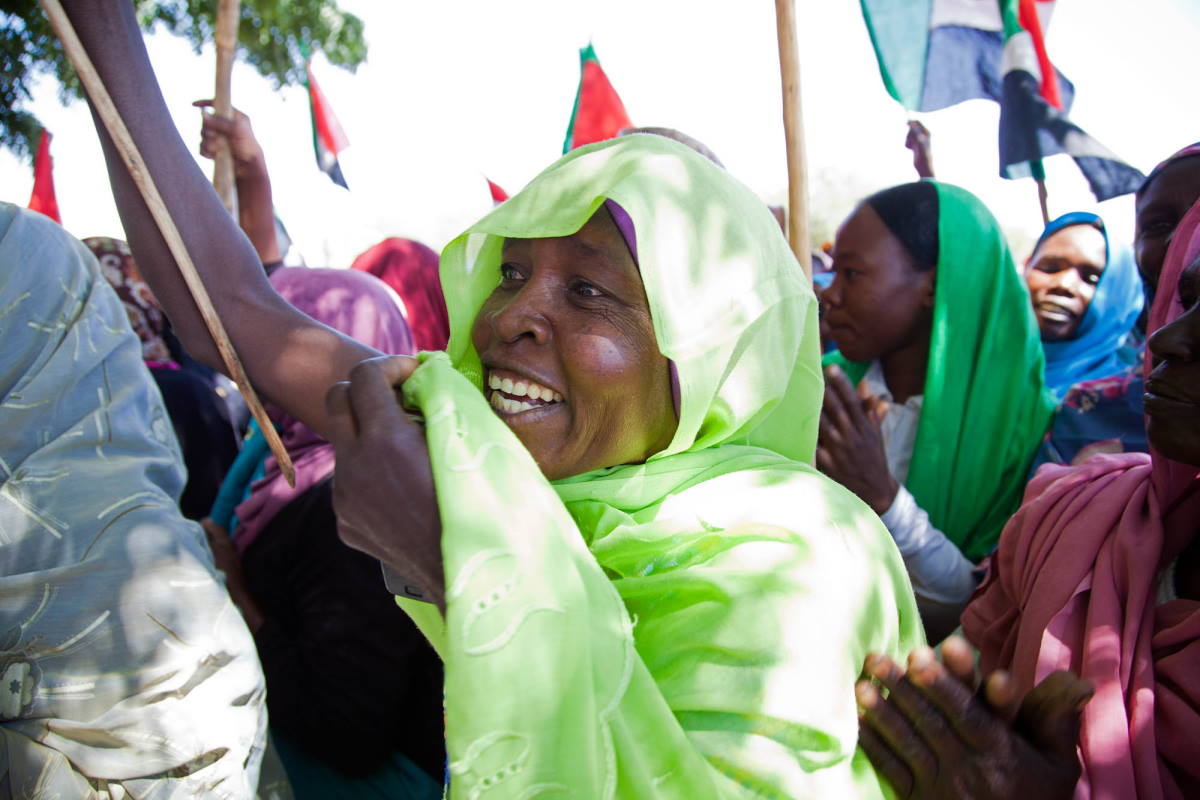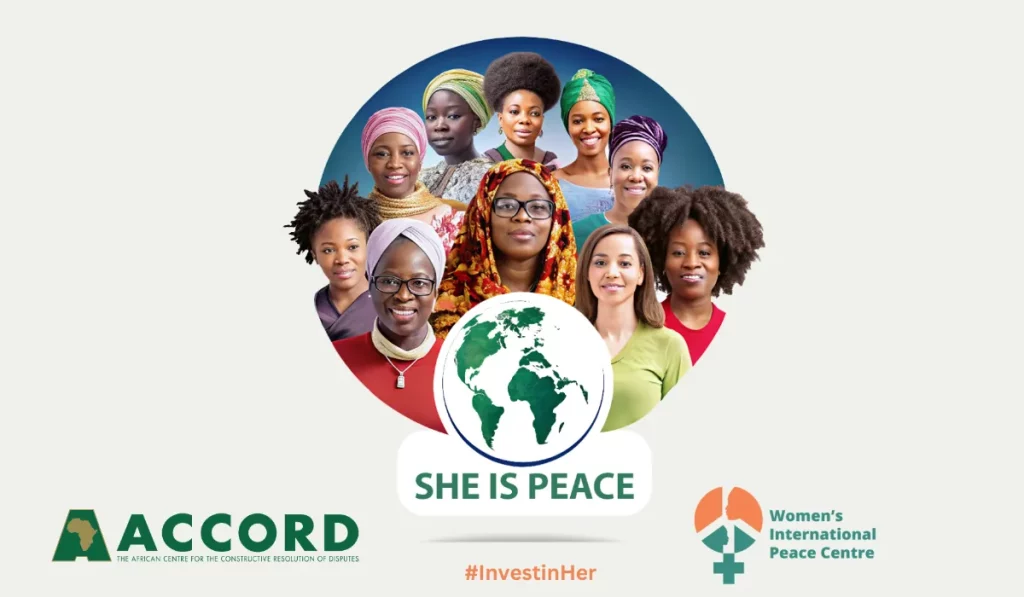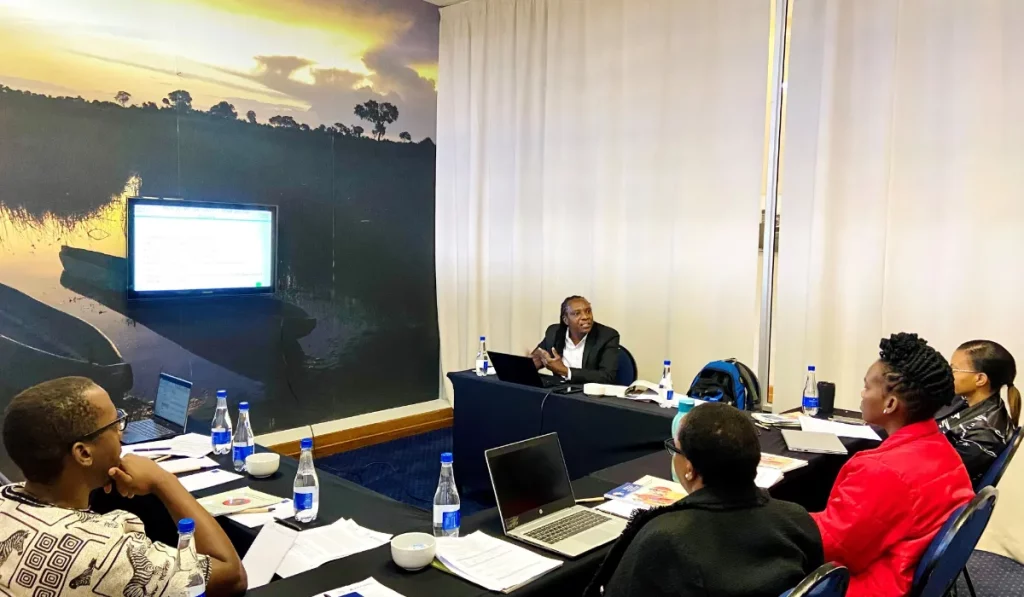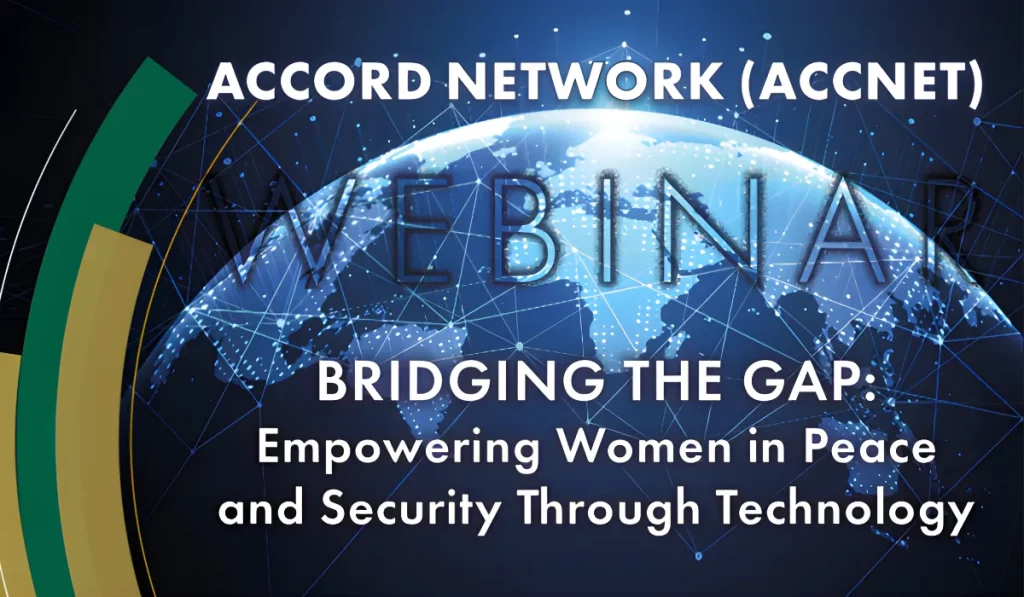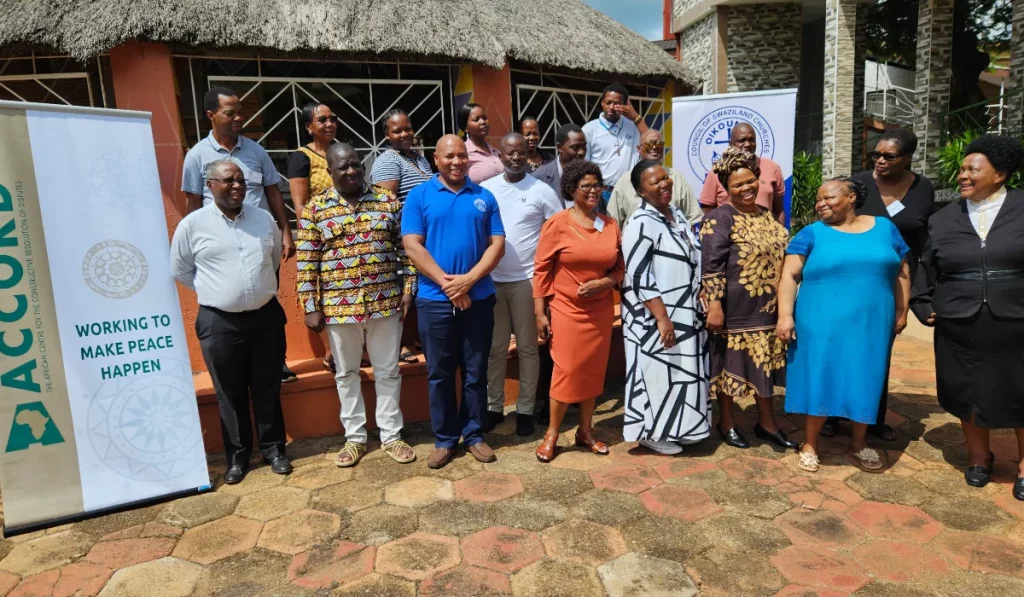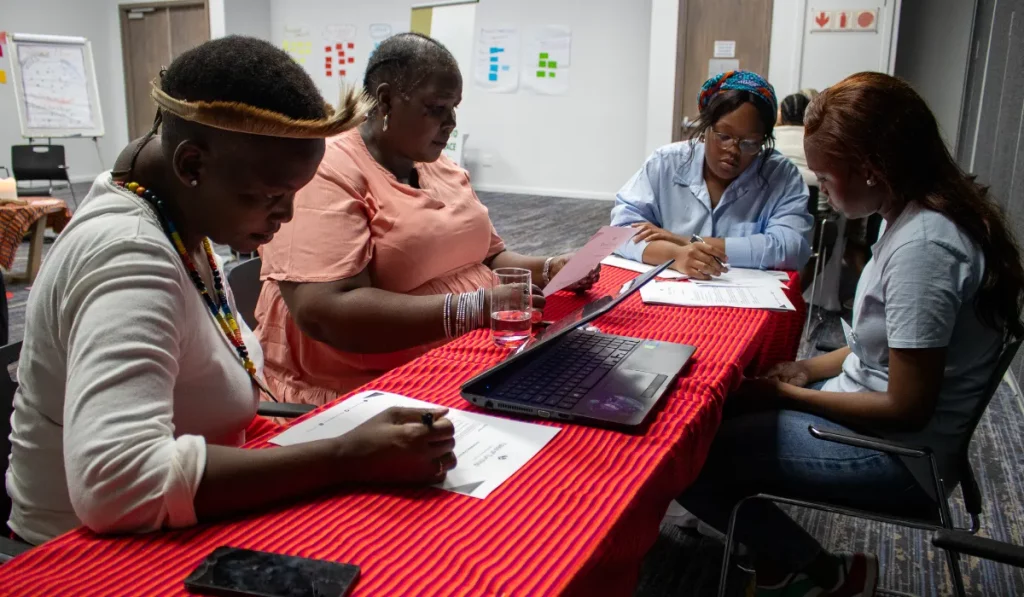On the 11th September 2020, Ms Pravina Makan-Lakha, ACCORD’s General Manager and Advisor on Women, Peace and Security (WPS), participated in an online dialogue titled Twenty Years of Implementing the Women Peace and Security Agenda Looking Back to Move Forward. This online dialogue was hosted by the Swedish Embassy in South Africa, supported by the Swedish Institute. The dialogue was hosted in order to provide an opportunity for South Africa, Namibia and Sweden to reflect on and recognise the achievements of the WPS Agenda.
The online dialogue was facilitated by Professor Cheryl Hendricks, with Ami Larsson Jain from the Embassy of Sweden giving the opening remarks. The people who participated in the panel session were Yasmin Sooka, Executive Director of the Foundation for Human Right; Anne Githuku-Shongwe, United Nations (UN) Women’s South Africa Multi-Country Office Representative; Karolina Vrethem, Deputy Director Foreign Affairs and WPS focal point person for Sweden; Zaheer Laher, Acting Chief Director, UN Peace and Security, Department of International Relations and Co-Operation (DIRCO), South Africa; and Thoko Mpumlwana, Chairperson, South African Women in Dialogue. The closing remarks were delivered by Amb. Mathu Joyini, Deputy Director General at DIRCO.
The panellists spoke to how UN Security Council Resolution (UNSCR) 1325 was really meant to increase women’s participation in the decision-making processes as well as preventing violence. Also discussed was the need to decrease military expenditure, counter violent extremism, greater female participation in decision-making, representation and access to justice.
The progress that the UN itself has made was also pointed out as the UN has reached gender parity at the under-secretary level. However, while these administrative measures can be made there is still a question about transforming culture around women in the work place. In addition, while plans can be made they are often not met with action or implementation. This speaks to a broader issue, particularly at a state level, where frameworks and policies have been made but issues around implementation continue to persist. As such, a review on the impact of women’s participation in parliament, the police and the broader legislature is needed as well as greater support in ensuring feminist policies.
Ms. Anne Githuku-Shongwe identified norms, such as patriarchy, and stereotypes about women as being the greatest challenge to gender equality. Therefore, it cannot just be an issue of inclusion but also of behavioural changes in the spaces of peacekeeping which would require the changing of norms and attitudes towards women.
The weakest areas of UNSCR 1325 were identified as the prevention of violence and the rise of violent extremism. Weak data collection, research and analysis mechanisms have resulted in inadequate and unsustainable resources being used to tackle issues of conflict and violence. Ms Karolina Vrethem thus suggested that there needs to be re-commitment to UNSCR 1325, while Mr Zaheer Laher said there needs to be an emphasis on implementation and that WPS should not be a standalone issue at the UN Security Council.
In conclusion, there needs to be more training programmes for women mediators, instruments for peace need to be localised, greater participation requires greater resources and women need to be given a space to be able to express themselves and say where they want to be.

